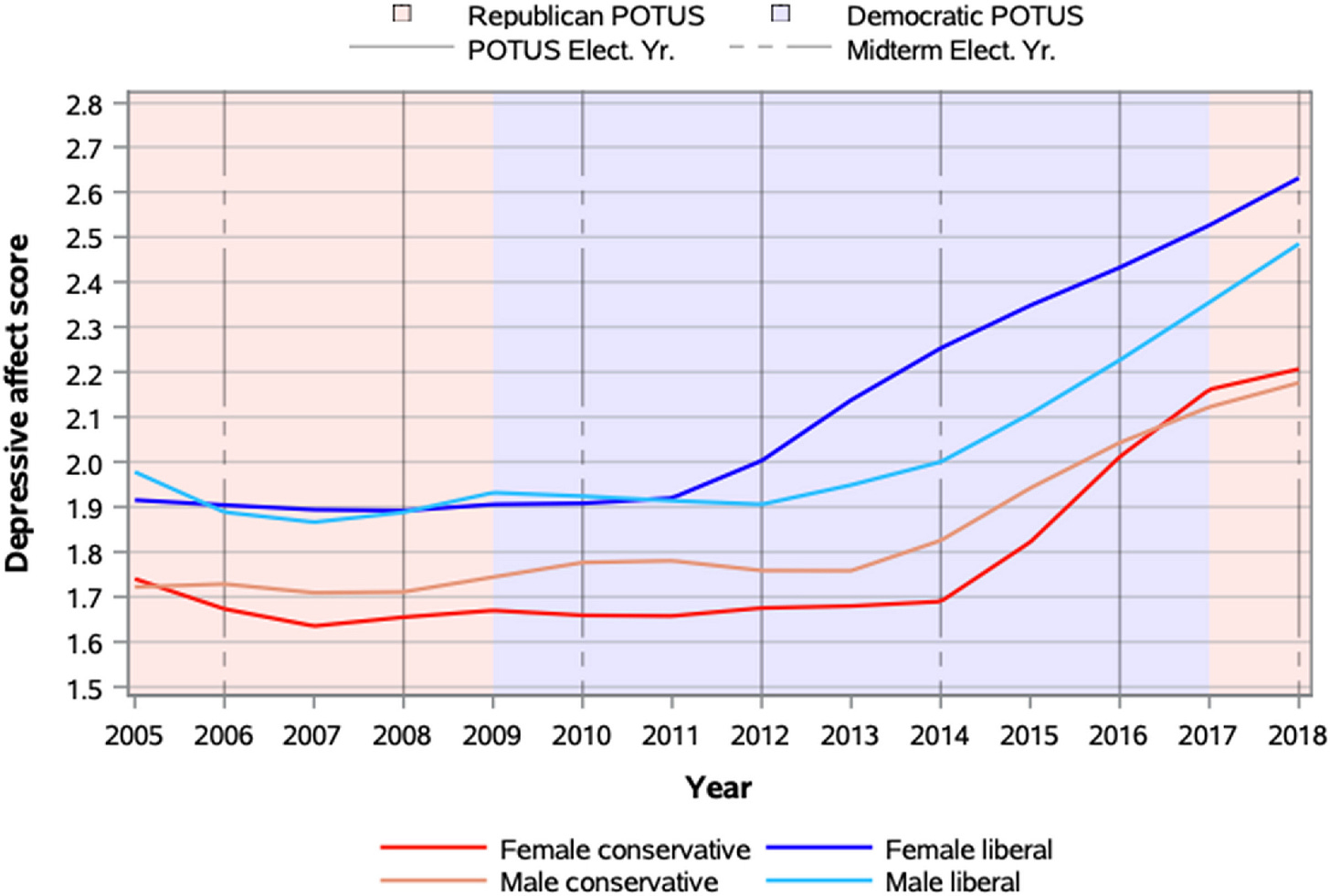Graph of the Day: Politics and Teen Mental Health
Female lefties < male lefties < female conservatives < male conservatives

Rates of mental illness among teenagers have increased dramatically over the last decade, with a particularly steep increase among teenage girls. The graph below shows levels of depressive affect in a sample of 86,138 U.S. teenagers, broken down by sex and political leanings. Long story short, mental-health declines are found in every group, but left-leaning girls are doing worst, followed by left-leaning boys, followed by right-leaning girls and boys.
The graph is from a paper by Catherine Gimbrone and colleagues titled “The politics of depression: Diverging trends in internalizing symptoms among US adolescents by political beliefs,” published in the journal SSM - Mental Health. Gimbrone et al. argue that a major contributing factor to the downturn in adolescent mental health is exposure to unsettling politicalized events at a particularly vulnerable time of life, made possible by the increased availability of digital news media. They further argue that the effects of news exposure differ based on people’s political worldviews, with a left-leaning worldview making one more prone to mental-health problems in response to political upheaval.
The argument sounds plausible enough to me. A quibble, though: The paper tacitly frames the decline in teen mental health as a product of changing levels of news exposure interacting with static political worldviews. However, the leftist and conservative worldviews of the early 2020s are in many ways very different from those of the early 2010s, and it’s possible that both have changed in ways that make them more depressogenic. The most obvious candidates here would be the rise of “wokeism” on the left and right-populism on the right, with both schools of thought taking a rather extreme and negative view of the world. Of course, the woke and right-populist worldviews are themselves shaped in part by political events in the surrounding culture. But the causal arrow presumably points in the other direction as well, and in any case, regardless of their origins, these worldviews may make an independent contribution to the mental-health crisis, over and above the effects of news exposure.
You can access a free copy of the paper here. And if you enjoyed this post, please consider subscribing.
Further Reading
For Jonathan Haidt’s take on the deterioration of teens’ mental health, check out this viral Substack post:
For discussion of the idea that progressive ideology may be making progressive teens depressed, see this fascinating post by Matthew Yglesias:




